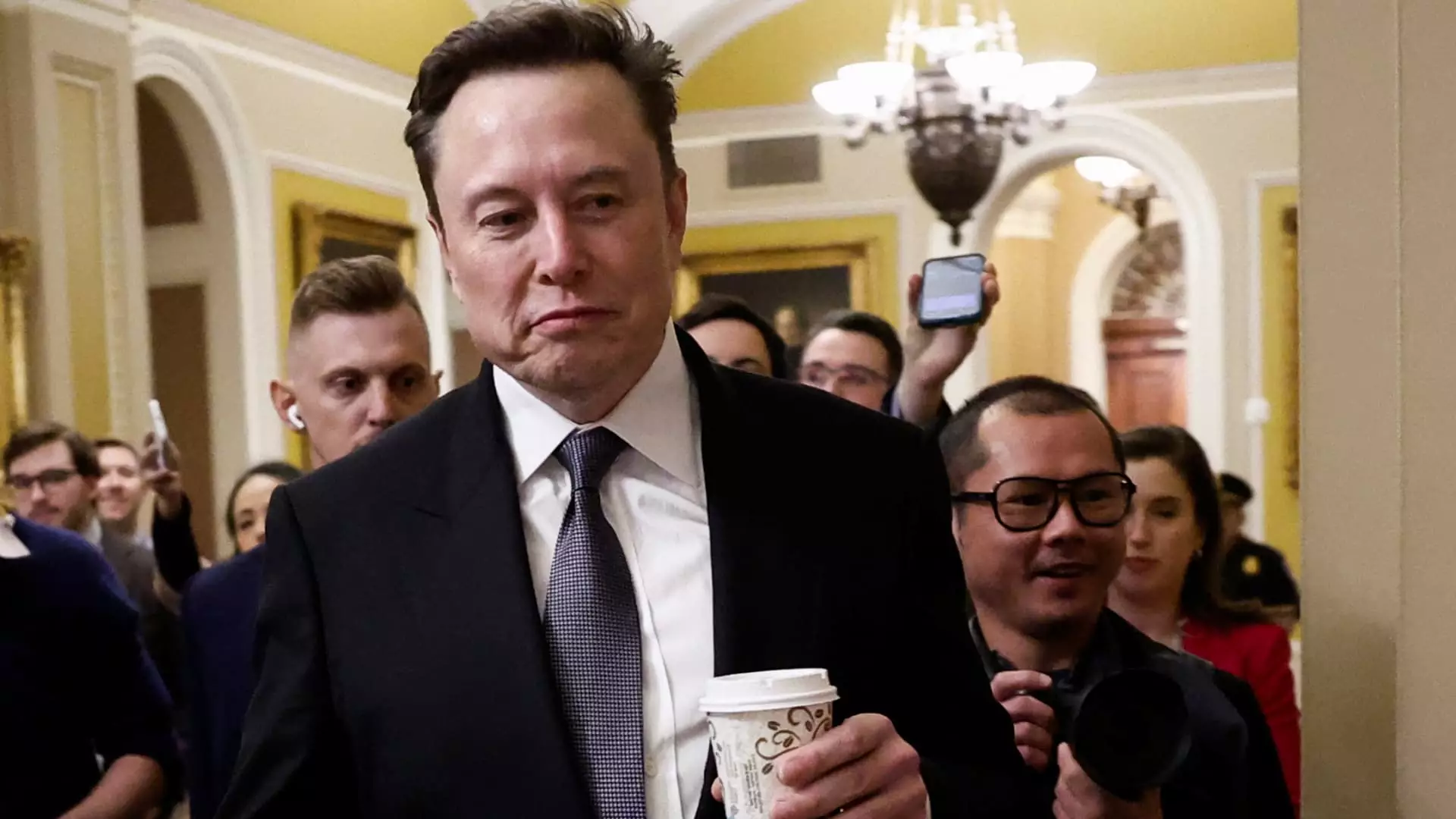Recent events involving prominent political figures, technological advances, and complex international relations present a vivid illustration of the delicate balance between economic interests and national security. The clash surrounding a bipartisan government funding bill that was overshadowed by the influence of tech mogul Elon Musk signals a growing concern among lawmakers regarding the role of private businesses in shaping U.S. policies, particularly in relation to foreign investment and technological development in China. The implications of these maneuverings not only affect the tech industry but also bear broader consequences for American workers, national security, and international relations.
House Democrats Jim McGovern and Rosa DeLauro expressed discontent after a proposed bipartisan bill aimed at imposing regulations on U.S. investments in China was stalled. This legislation had the potential to create restrictions around cutting-edge technologies, such as artificial intelligence and quantum computing, which are critical components in maintaining the competitive edge of the American economy. Instead, Congress opted for a stopgap funding bill to avert an immediate government shutdown. While it served to provide temporary relief, critics argue that it eroded the potential for stricter oversight on foreign investments that could threaten U.S. economic integrity.
DeLauro, who holds a substantial position on the House Appropriations Committee, articulated the concern over Musk’s close associations with Chinese authorities. With Musk’s Tesla being the only foreign automaker in China that does not require a local joint venture, questions arise about how deeply entwined American pursuits are with foreign interests. The ability of American innovators to thrive hinges not just on their technological capabilities but also on political and economic landscapes shaped by individuals with their own interests.
Musk’s influence cannot be overlooked. As the leader of both Tesla and SpaceX, he plays a pivotal role in the economic landscape. However, his ventures have seemingly drawn him into geopolitical complexities. Tesla’s recent investments in China, including the construction of a battery plant close to its Shanghai factory, suggest a strategic alignment with the region’s economic goals. Critics argue that this alignment raises red flags regarding national security. In a world where technology plays an increasing role in warfare and surveillance, the potential for a foreign company to access sensitive technologies embodies a considerable risk for America.
His response to criticism, notably calling DeLauro an “awful creature,” underscores a troubling trend where emotional reactivity replaces substantive dialogue in high-stakes political discussions. Often, the rhetoric surrounding Musk blurs the line between constructive criticism and personal disdain, further deepening partisan divides.
The Political Intrigue: Ties to Trump and Broader Implications
Adding another layer of complexity to this issue is Musk’s growing alliance with former President Donald Trump. Following the 2024 election cycle, Musk has emerged as one of Trump’s primary supporters, not only financially backing Republican efforts but also actively participating in discussions with foreign dignitaries. His recent contributions have raised eyebrows, prompting some to reference him humorously as “President Musk,” suggesting a governance style that prioritizes corporate interests over public welfare.
The intersection of Musk’s business dealings with Trump’s political ambitions leads to a perceived conflation of personal and national interests. When Musk criticized the stalled funding negotiations before Trump’s public comments, it further illustrated how intertwined corporate power and political maneuverability have become. The collaboration on regulatory cuts presents both opportunities and hardships—while reducing restrictions could incentivize innovations, the risks related to national security cannot be underestimated.
In the wake of these events, the conversation around the interplay of technological innovation, economic strategy, and national security is more critical than ever. As ambitious entrepreneurs like Musk navigate international waters, the responsibility lies with lawmakers to ensure that American jobs, technology, and security are not compromised in the pursuit of profit. Striking a balance will require rigorous scrutiny of foreign investments, as well as an acknowledgment that the interests of a select few should never overshadow the protective measures crucial for the greater good. The ongoing dialogue must evolve to incorporate a comprehensive understanding of how economic decisions resonate within a global context, thereby safeguarding the future of both American innovation and security.


Leave a Reply